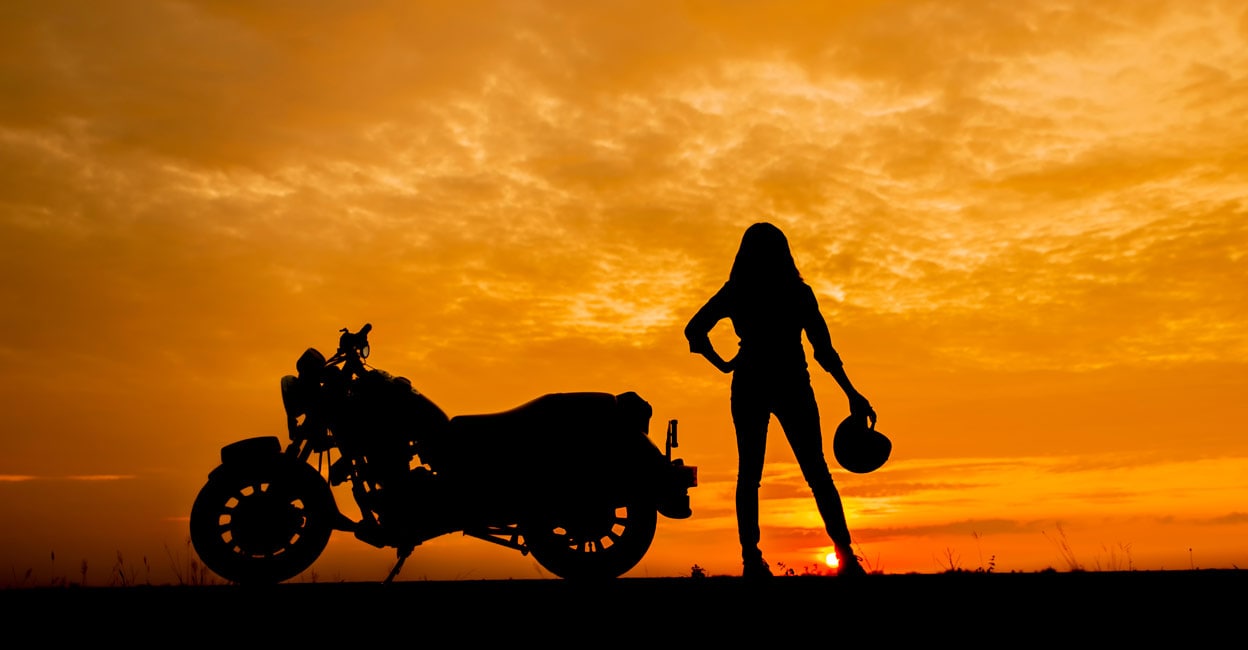Dos and don'ts of a two-wheeler road trip

Mail This Article
There is nothing like a long-distance two-wheeler ride as it provides a unique exhilarating experience. The journey on a motorbike gives an opportunity to get a feel of the elements of nature and every travel junkie should go on a two-wheeler road trip at least once. But while travelling on a two-wheeler one shouldn’t throw caution to the wind. Here are some of the pertinent points that should be kept in mind before donning the helmet and hitting the road on a motorcycle or scooter.
Be well prepared
Make sure your motorbike doesn’t have any glitches and tune the two-wheelers to perfection for a long haul. Carry raincoats and appropriate shoes if you are embarking on a long ride, and do keep a plastic sheet to cover the luggage if it rains. The helmet should be of high quality as it is going to be an inevitable part of your ride. And if you are travelling to a destination with a nippy weather, then pack jackets and gloves to stay warm. A packet or two of mixed dry fruits would give you ample energy if you feel hungry on the way. Other things that should be part and parcel of your luggage are first-aid kits, torches, wet wipers, toilet rolls, photo chromatic eye wears and eye drops. A physical address book and a spare mobile phone can only help you to complete the motorcycle journey with confidence.
Don’t exert too much
The first thumb rule of a bike ride is to call it a day and take ample rest if you are exhausted. Don’t try to log 500km a day if the maximum distance you had covered a day earlier was just 250km. Don’t overstretch yourself as you can enjoy the ride only if your body and mind are in the pink of health.
Safety is topmost priority
Just remember that this is a journey and not a race, and make sure to ride the two-wheeler at a moderate speed. Always maintain a safe distance from the trucks in front of you and refill the fuel tank at regular intervals. Your common sense should always be on overdrive and don’t take any unnecessary risks. The requisite tools to repair the two-wheeler, if it breaks down, should also find space in your luggage, and rudimentary knowledge of bike mechanics is imperative.

Be healthy
While off-roading, you may not have the luxury of having food from swanky hotels and will have to settle for food from wayside eateries and ‘dhabas’. You won’t be able to ride bike on an empty stomach and make it a point to eat from places with minimum hygiene, and also eat light. Bread and butter, toast and omelette won’t he heavy on your stomach and are the best choices while riding two-wheelers.
Always stay hydrated and drink at least two liters of water daily. Dehydration can trigger fatigue, body pain and constipation. It is better to drink small quantities of water at regular intervals instead of drinking lot of water in one go. If needed, mix ORS (Oral Rehydration Solution) with water to maintain electrolyte balance in the body. You can also take vitamin supplement tablets under the instructions of a medical doctor to prevent any vitamin deficiency. And make sure to carry medicines that could be useful in emergencies.
Listen to your body
It is quite natural to have body pain after a long-winding bike ride, and it is important to take a breather while riding the two-wheeler for many hours. To reduce body pain, don’t carry heavy backpacks on your shoulders or strap cameras or bags around your hip while riding. Moreover, wear top-quality jackets, gloves and sun goggles, and it is advisable to take rest for 10 minutes after riding the bike for one hour.

